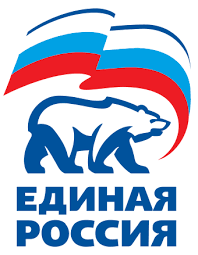21 feb 2017
Schending vrijheid van meningsuiting door veroordeling kritische artikelen in krant Orlovskaya Iskra

EHRM 21 februari 2017, IEF 16940; IEFbe 2244; Application no. 42911/08 (Orlovskaya Iskra tegen Rusland) Persvrijheid. Vrijheid van meningsuiting. De NGO publiceert de krant Orlovskaya Iskra. De NGO werd veroordeeld voor een administratief misdrijf met betrekking tot het publiceren van kritiek op een politicus, de heer Stroyev. De NGO klaagt bij het EHRM op grond van artikel 10 (vrijheid van meningsuiting). Het EHRM stelt dat er onvoldoende dwingende redenen zijn aangetoond om vervolging en veroordeling te rechtvaardigen voor het publiceren zulke kritische artikelen. Sprake van schending van de vrijheid van meningsuiting, artikel 10 EVRM.
The applicant NGO published a regional newspaper whose political affiliation was specified on the front page. During the 2007 election campaign for the lower chamber of Parliament, the newspaper published a number of articles criticising a candidate in those elections. The regional electoral committee examined the articles and concluded that, in breach of the relevant domestic provisions, they contained elements of electoral campaigning which had not been paid for from the official campaign fund of any party as required. The applicant was found guilty of an administrative offence and fined. On 27 December 2007 a district court dismissed its appeal. The applicant subsequently lodged two supervisory-review applications and a constitutional complaint, all of which were dismissed. In the Convention proceedings, the applicant complained under Article 10 about the classification of the material it had published as election campaigning and the fine imposed for failing to indicate who had commissioned its publication.
The application before the Court had been lodged more than six months after the appeal decision dated 27 December 2007. However, each of the two decisions at supervisory-review level and the decision of the Constitutional Court were taken and received by the applicant within the six month time-period. At the material time the Code of Administrative Offences (“CAO”), which governed the proceedings, did not provide for any time-limit for seeking supervisory review. The absence of time-limits for using a remedy created uncertainty, and in principle rendered nugatory the six-month rule. However, in 2006 the Constitutional Court had issued a decision stating that an application for supervisory review was to be lodged within three months of the date when the last impugned judgment entered into force. Given that the supervisory-review proceedings had been launched within the three-month time-limit, that those proceedings remained within the same chain of domestic remedies, and that those proceedings were, in principle, capable of dealing with the substance of the relevant Convention issue and to afford adequate redress, the applicant could reasonably have counted on the effectiveness of that remedy and had been required to pursue it before lodging an application before the Court.
It was appropriate to consider the applicant’s right to freedom of expression in the light of the rights guaranteed by Article 3 of Protocol No. 1, which were crucial to establishing and maintaining the foundations of an effective and meaningful democracy governed by the rule of law. Free elections and freedom of expression, particularly freedom of political debate, formed the bedrock of any democratic society. The two rights were inter-related and operated to reinforce each other. It was particularly important that in the period preceding an election, opinions and information of all kinds were permitted to circulate freely.
It had not been substantiated that the impugned publications were political advertisements, rather than ordinary journalistic work. The applicant organisation had clearly specified on the newspaper’s front page its formal political affiliation. There was no reason to consider that any candidates or political parties were at the origin of the impugned articles. Therefore, the publication of the impugned articles constituted a fully-fledged exercise of freedom of expression, namely the choice to publish the articles, thus imparting information to the readers and potential voters.
It was difficult, if not impossible, to ascertain whether the content in relation to a candidate should be perceived as a mere negative comment or whether it had a campaigning goal. The domestic regulative framework restricted the activity of the print media on the basis of a criterion that was vague and conferred a very wide discretion on public authorities that were to interpret and apply it. It had not been convincingly demonstrated that the print media should be subjected to rigorous requirements of impartiality, neutrality and equality of treatment during an election period. The public watchdog role of the press was no less pertinent at election time. That role encompassed an independent exercise of freedom of the press on the basis of free editorial choice aimed at imparting information and ideas on subjects of public interest. In particular, discussion of the candidates and their programmes contributed to the public’s right to receive information and strengthened voters’ ability to make informed choices between candidates for office.
By subjecting the expression of comments to the regulation of campaigning and by prosecuting the applicant with reference to this regulation, there had been an interference with the applicant organisation’s editorial choice to publish a text taking a critical stance and to impart information and ideas on matters of public interest. No sufficiently compelling reasons had been shown to justify the prosecution and conviction.
134. The Court concludes that, in view of the regulatory framework, the applicant organisation was restricted in its freedom to impart information and ideas. By subjecting the expression of comments to the regulation of “campaigning” and by prosecuting the applicant with reference to this regulation, there was an interference with the applicant organisation’s editorial choice to publish a text taking a critical stance and to impart information and ideas on matters of public interest. No sufficiently compelling reasons have been shown to justify the prosecution and conviction of the applicant organisation for its publications at election time.
135. The Court concludes that there has been a violation of Article 10 of the Convention.





















































































